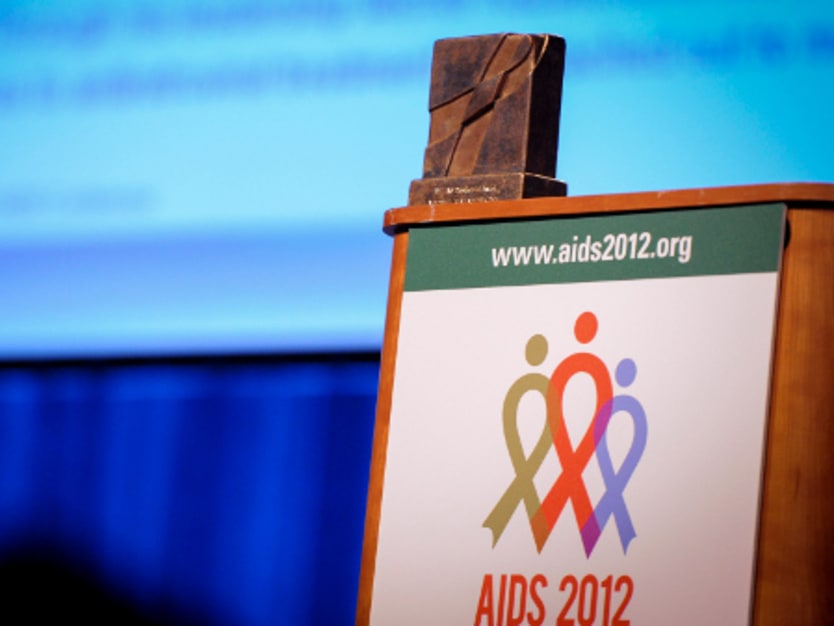
The dust has barely settled on last week’s massive International AIDS Conference, yet plans are well underway for the next gathering two years from now in Melbourne, Australia.
At a panel discussion Wednesday (Aug. 1) in Washington, experts looked back at the main surprises of the just-concluded health meeting, and offered predictions on what the 2014 follow-up will focus on.
Big gatherings tend to bear the imprint of its host. Australia’s AIDS conference may, therefore, put a greater focus on human rights and governance issues, said Chris Beyrer, president-elect of the International AIDS Society, which convenes the biannual event.
The promotion of human rights is a key priority for Australia’s aid program, although it is not among the six priorities of its international development strategy for HIV.
Several countries routinely violate the human rights of high-risk groups like commercial sex workers and men who have sex with men. Homosexuality is punishable by death in Iran and Yemen, for instance, and carries a long prison sentence in Jamaica and Malaysia. Sex workers and drug users were prevented from attending this year’s conference in the U.S. capital.
HIV prevalence in men is actually higher in countries that criminalize homosexuality, according to Greg Millett, senior policy adviser in the White House Office of National AIDS Policy.
Also expected to feature prominently in Melbourne is what panelists on Wednesdaycalled the “cure agenda” — the quest for a cure for AIDS, which has gained some traction lately and, to the surprise of many skeptics, featured prominently at the 19th International AIDS Conference. The International AIDS Society launched a global strategy toward an HIV Cure just before the event, held July 22-27 at the Washington Convention Center; UNAIDS Executive Director Michel Sidibé has said finding a cure was a “critical innovation gap.”
Only one man is considered to have been definitively cured of HIV. American Timothy Brown received a stem cell bone marrow transplant from a donor with a mutation that prevents HIV from being transmitted from one cell to another. Scientists are investigating whether gene therapy might be used for other patients with similar results.
There’s reason to believe that in two years, scientists could be even more vocal about the possibility of finding a cure for what today, in many parts of the world, is being treated as a chronic condition.
As treatment improves and patients live longer, the focus may shift toward the transmission of HIV among an older demographic. By 2020, half the HIV-positive people in the United States will be over 50 years old, Beyrer said. For a disease that has always been approached as an affliction of the youth, a new perspective is needed — and Melbourne may set the frame.
Holding the conference in Australia should increase participation by Asian countries, said J. Stephen Morrison, senior vice president director of the Global Health Policy Center at the Center for Strategic and International Studies, which hosted Wednesday’s panel discussion.
The Asia-Pacific region has the second-highest number of people infected with HIV after sub-Saharan Africa, with around 4.2 million. HIV prevalence among intravenous drug users in Asia is among the highest in the world. Sex workers and drug users across the continent are often detained and harassed by police or denied due process in court.
In the United States, the world’s leading donor to international AIDS causes, several tasks will take priority in the coming years, including the reauthorizing the President’s Emergency Plan for AIDS Relief, which has come under fire for recent funding cuts.
The buoyant optimism at the 1996 International AIDS Conference in Vancouver, remembered as the most exciting conference to date, was followed by cynicism and frustration at the next gathering in Geneva. The hope for Melbourne is that it can avoid a letdown after this year’s show of optimism.
Be prepared to judge the success of the Australia conference by something other than numbers. The event will probably not gather as many as the 23,700-plus delegates who showed up in Washington last month — at least not physically. But the conference is expected to make greater use of the Internet, as organizers grapple with one unchangeable fact: For many people, Australia is just too far to travel to.
Read more:
Read more development aid news online, and subscribe to The Development Newswire to receive top international development headlines from the world’s leading donors, news sources and opinion leaders — emailed to you FREE every business day.








